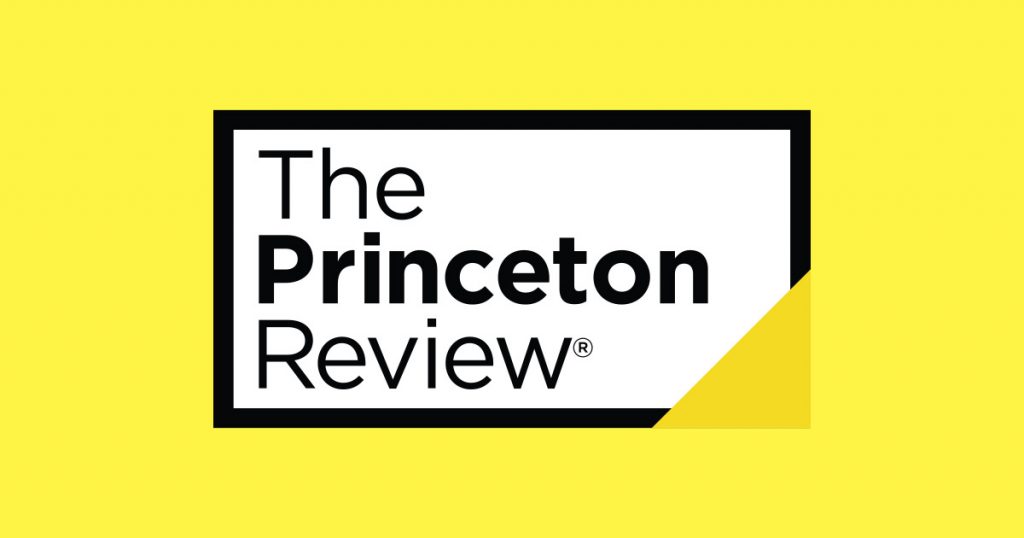The Princeton Review
The Princeton Review is a well-known educational services company that specializes in test preparation, tutoring, and college admission services. It offers courses and resources for various standardized tests like the SAT, ACT, GRE, GMAT, LSAT, and more.
Beyond test prep, it provides college admission counseling, academic tutoring, and online resources such as practice tests and study materials. The company’s focus is to assist students in achieving their academic goals by providing them with tools, strategies, and guidance necessary for success in standardized tests and college admissions processes. Their services often include books, online platforms, live classes, and personalized tutoring to cater to different learning styles and needs.
Is The Princeton Review connected to Princeton?
The Princeton Review is not directly affiliated with Princeton University. The name “Princeton” in The Princeton Review’s title might suggest a connection, but the company itself is a separate entity from Princeton University.
The Princeton Review was founded in 1981 by John Katzman and Adam Robinson. Its name was inspired by the street in New Jersey where its initial office was located, which happened to be near Princeton University. However, the company is an independent entity that offers test preparation and educational services across various locations but is not officially associated with the university.

What is the meaning of Princeton Review?
The name “Princeton Review” has two components:
“Princeton” refers to Princeton University, a prestigious Ivy League university in New Jersey, USA. It’s known for its academic excellence and historic reputation.
“Review” implies the act of revisiting, assessing, or analyzing something critically. In the context of The Princeton Review, it suggests a thorough examination or evaluation of academic material, particularly in preparation for standardized tests or academic challenges.
So, when combined, “Princeton Review” might suggest a critical examination or assessment of academic content or preparation material associated with a connection or inspiration from Princeton University.
How much is Princeton Review for SAT?
The cost of Princeton Review’s SAT preparation courses can vary based on the type of course, duration, and additional features included. As of my last update, prices for Princeton Review SAT courses ranged from a few hundred dollars to around a thousand dollars or more.
Their offerings often include different packages such as in-person classroom courses, online classes, self-paced study programs, and private tutoring. Each of these options comes with varying price points. Additionally, they might offer discounts or promotions during certain periods.
For the most current and accurate pricing details, it’s best to visit the Princeton Review website or directly contact their customer service. They often have updated information on course offerings, pricing, and any ongoing discounts or deals.

Is Princeton reputable?
Yes, Princeton University is widely recognized as one of the most prestigious and reputable universities globally. As a member of the Ivy League, it has a long-standing reputation for academic excellence, rigorous programs, and a distinguished faculty. Princeton consistently ranks among the top universities in various global rankings due to its exceptional educational standards, research contributions, and intellectual contributions to various fields.
Its strong emphasis on research, quality of education, and notable alumni across diverse disciplines further contribute to its reputation. Princeton’s selective admissions process, beautiful campus, and commitment to fostering a vibrant academic community also contribute to its esteemed status in higher education.
Is Princeton as good as Harvard?
Princeton and Harvard are both highly prestigious universities, but comparing their quality or determining which is “better” can be subjective and depends on various factors.
Both institutions are Ivy League universities known for their academic excellence, outstanding faculty, and robust resources. Each has its strengths and unique qualities. Princeton, for instance, is renowned for its emphasis on undergraduate education, its close-knit community, and its strong focus on research across various disciplines. Harvard, on the other hand, is known for its extensive resources, diverse academic programs, and global impact in research and innovation.
The differences in campus culture, academic programs, and individual preferences make it challenging to definitively say one is better than the other. It often comes down to personal fit, specific academic interests, and goals when determining which university might be the best match for a particular student. Both Princeton and Harvard offer outstanding educational experiences, and their reputations reflect their commitment to excellence in academia and research.

Is Princeton Review easier than SAT?
The Princeton Review offers SAT preparation materials and courses designed to help students prepare effectively for the SAT exam. It’s important to note that The Princeton Review doesn’t make the SAT itself easier; rather, it provides resources, strategies, and practice materials to help students understand the test format, content, and question types. This preparation can make the SAT seem more manageable and less daunting for students who use these resources effectively.
The SAT is a standardized test designed to assess a student’s readiness for college and measures skills in reading, writing, and math. The Princeton Review’s materials aim to familiarize students with the exam’s structure, content, and pacing, offering strategies to approach different types of questions and maximize their performance.
Ultimately, the SAT remains the same standardized test regardless of the preparation materials used. The goal of The Princeton Review and similar test prep services is to equip students with the tools and knowledge to perform well on the SAT by understanding the test format and content, practicing effectively, and developing effective test-taking strategies.
Who writes Princeton Review?
The Princeton Review’s educational materials, including books, courses, and practice tests, are typically developed by a team of experts in education, curriculum design, test preparation, and subject matter specialists.
These materials are often created by a group of writers, editors, educators, and content creators who work collaboratively to ensure accuracy, relevance, and effectiveness in helping students prepare for standardized tests such as the SAT, ACT, GRE, GMAT, and others.
Subject matter experts contribute to specific sections or subjects within these tests, while instructional designers and educators work on creating strategies, explanations, and practice questions that align with the test’s format and content. The content undergoes rigorous review processes to ensure high quality and alignment with the goals of helping students succeed in their test preparation efforts.

Is The Princeton Review good for SAT?
The Princeton Review is well-regarded for its SAT preparation materials and courses. Many students have found their resources helpful in preparing for the SAT exam. The company offers a variety of study materials, practice tests, online resources, and courses designed to familiarize students with the content, structure, and strategies needed to perform well on the SAT.
Their materials often include comprehensive content review, test-taking strategies, and ample practice questions that mirror the format and difficulty level of the actual SAT. Additionally, their instructors and tutors are typically experienced and knowledgeable in guiding students through the test preparation process.
However, the effectiveness of any SAT preparation program can vary for each individual. Success in the SAT often depends on various factors, including a student’s dedication, study habits, prior knowledge, and ability to apply the strategies learned during preparation. It’s a good idea for students to explore different resources and choose the one that best aligns with their learning style and needs. Reading reviews, consulting with counselors, or trying sample materials can also help determine if The Princeton Review’s SAT preparation is a good fit for a particular student.
Why is Princeton so prestigious?
Princeton University holds a prestigious status for several reasons:
- Academic Excellence: Princeton consistently maintains high academic standards and offers rigorous programs across various disciplines. Its faculty includes renowned scholars and researchers, contributing significantly to academia and innovation.
- Historical Significance: Founded in 1746, Princeton is one of the oldest universities in the United States. Its long history and traditions contribute to its esteemed reputation.
- Ivy League Membership: As a member of the Ivy League, Princeton is part of a group of prestigious universities known for their academic excellence, selective admissions, and substantial resources.
- Selectivity in Admissions: Princeton has a highly competitive admissions process, admitting a small percentage of applicants each year. This selectivity contributes to its reputation for attracting top-tier students.
- Resources and Facilities: The university boasts excellent resources, including cutting-edge research facilities, extensive libraries, and state-of-the-art campuses, providing students with an enriching learning environment.
- Strong Alumni Network: Princeton’s alumni network includes influential figures in various fields, from politics to business, academia, and the arts. This network provides opportunities for current students and contributes to the university’s prestige.
- Focus on Undergraduate Education: Princeton is known for its focus on undergraduate education, offering small class sizes, close interactions between students and faculty, and research opportunities even at the undergraduate level.
The combination of these factors contributes to Princeton’s standing as one of the world’s most prestigious universities, attracting top talents and contributing significantly to academia and society.
Is 1500 SAT good for Princeton?
A score of 1500 on the SAT is generally considered a strong score and falls within the range of scores admitted to Princeton University. However, admission to highly selective universities like Princeton is not solely based on test scores. While a 1500 SAT score is a positive indicator, other factors also play a crucial role in the admissions process.
Princeton looks at a holistic view of applicants, considering various aspects such as GPA, extracurricular activities, letters of recommendation, essays, and personal achievements. They seek well-rounded students who not only excel academically but also demonstrate leadership, commitment to community service, unique talents, and a diverse range of interests.
While a 1500 SAT score is competitive, it’s essential to remember that the admission process to elite universities is highly competitive, and many applicants have exceptional academic records and achievements. As such, a strong SAT score should be complemented by a well-rounded application showcasing strengths across various aspects.
Is 1500 a good SAT score for Princeton?
A score of 1500 on the SAT is generally considered a strong score and falls within the range of scores admitted to Princeton University. However, admission to highly selective universities like Princeton is not solely determined by test scores. While a 1500 SAT score is a positive indicator, other factors also play a crucial role in the admissions process.
Princeton looks at a holistic view of applicants, considering various aspects such as GPA, extracurricular activities, letters of recommendation, essays, and personal achievements. They seek well-rounded students who not only excel academically but also demonstrate leadership, commitment to community service, unique talents, and a diverse range of interests.
While a 1500 SAT score is competitive, it’s important to remember that the admission process to elite universities is highly competitive, and many applicants have exceptional academic records and achievements. As such, a strong SAT score should be complemented by a well-rounded application showcasing strengths across various aspects.
How do you get a 1600 on the SAT?
Scoring a perfect 1600 on the SAT requires a combination of thorough preparation, effective study strategies, and familiarity with the test format. Here are some tips that might help:
- Understand the Test: Familiarize yourself with the format, sections, question types, and time limits of the SAT. Use official practice tests released by the College Board to understand the structure of the exam.
- Effective Study Materials: Utilize high-quality study materials, such as prep books, online resources, and official SAT practice materials. Resources from reputable sources like The College Board, Khan Academy, or other trusted test prep companies can be valuable.
- Develop Strong Fundamentals: Focus on strengthening your core skills in math, reading, and writing. Review foundational concepts and practice regularly to build accuracy and speed.
- Practice Regularly: Consistent practice is key. Work on official practice tests under timed conditions to simulate the actual test environment. Analyze mistakes to understand areas that need improvement.
- Test-Taking Strategies: Learn effective strategies for each section. For example, in the Reading section, focus on identifying main ideas, understanding passage structures, and managing time efficiently.
- Work on Time Management: Since time is limited for each section, practice managing time effectively. Pace yourself to ensure you can complete each section without rushing.
- Seek Help if Needed: Consider getting guidance from tutors, teachers, or online resources if you’re struggling with specific sections or concepts.
- Stay Confident and Focused: Maintain a positive mindset, manage stress effectively, and stay focused during both your preparation and the actual test.
Remember, achieving a perfect score on the SAT is challenging and requires dedication, consistent effort, and a strong understanding of the test’s content and structure. Even if you don’t reach a perfect score, a well-prepared and competitive score can still significantly benefit your college application.
Is Princeton cheaper than Harvard?
The cost of attending Princeton University and Harvard University can vary based on several factors, including financial aid packages, scholarships, personal circumstances, and individual financial need.
Both Princeton and Harvard are private Ivy League universities known for their high tuition fees. However, both universities are committed to meeting the demonstrated financial need of admitted students, and they have robust financial aid programs.
The actual cost of attending either university will depend on various factors, including the specific financial aid package offered to a student based on their family’s financial situation. These aid packages might include grants, scholarships, work-study opportunities, and loans.
It’s important for prospective students to explore the financial aid and scholarship options available at each university and consider factors beyond just the sticker price when comparing the cost of attendance. Each student’s financial situation and the aid offered can significantly impact the actual cost of attending either Princeton or Harvard.
Are the Princeton Review tests accurate?
The Princeton Review’s practice tests are generally designed to mirror the format, content, and difficulty level of the actual standardized tests, such as the SAT, ACT, GRE, GMAT, and others. They aim to provide students with a realistic simulation of the exam experience.
While The Princeton Review puts effort into creating practice tests that resemble the real exams, the accuracy of any practice test can vary. Some students might find these tests to be very close in resemblance to the actual exams, while others might notice slight differences.
However, using practice tests from reputable sources like The Princeton Review can still be beneficial for several reasons:
- Familiarity with Test Format: These practice tests can help you become familiar with the structure, question types, and pacing of the actual exam.
- Identifying Strengths and Weaknesses: Taking practice tests allows you to identify areas where you excel and areas that need improvement, helping you focus your study efforts.
- Test-Taking Strategies: Practicing with these tests helps you develop effective test-taking strategies and manage time efficiently.
- Building Confidence: Working with practice tests can boost your confidence and reduce test anxiety by making the actual test experience feel more familiar.
While practice tests can be valuable tools for preparation, it’s essential to remember that they are simulations and might not perfectly replicate the actual test. Therefore, it’s advisable to use a variety of study materials, including official practice tests from the test-makers themselves, to ensure a well-rounded preparation strategy.
What difficulty level is Princeton?
Princeton University, as an Ivy League institution, is known for its rigorous academic programs and challenging coursework. The difficulty level at Princeton can vary based on the specific courses, majors, and individual academic strengths and interests of the students.
The university offers a wide range of academic programs across various disciplines, and while the coursework is generally demanding, the difficulty level might differ from one course to another. Some courses might be more challenging due to their advanced content or high expectations, while others might be more accessible or tailored to specific skill levels.
Overall, Princeton is known for its commitment to academic excellence, research opportunities, and a comprehensive approach to education. Students are expected to engage deeply with their studies, participate actively in discussions, conduct research, and manage a rigorous workload. However, the university also provides support systems such as advising, tutoring, and resources to help students navigate and succeed in their academic pursuits.



